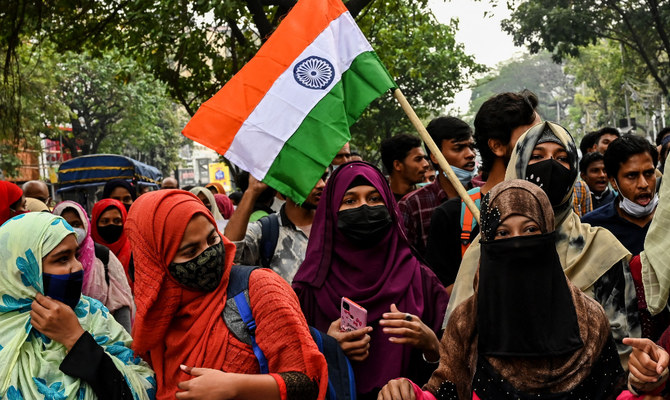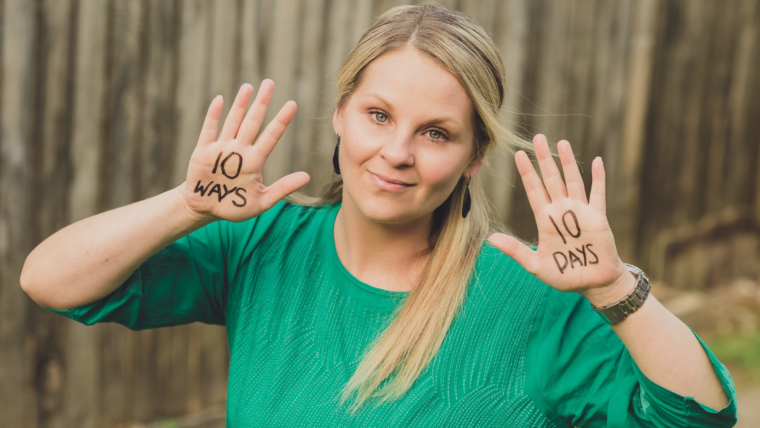
Muslim Women in India Protest State’s Ban on Hijab in Schools
By Anisha Kukreja
A court in Karnataka is considering whether the ban violates religious freedom in a case that has polarized the country and added to concerns about anti-Muslim sentiment.
Muslim women in southern India are seeking to overturn a state policy that allows schools to ban the hijab in a case that has polarized the country and added to concerns about discrimination against its Muslim minority.
A court hearing on the issue in the southern state of Karnataka is continuing this week. Students challenging the ban on the hijab, or headscarf, say it infringes on their right to education and religious freedom in Hindu-majority India, where secularism is enshrined in the constitution.
Hindu nationalism and anti-Muslim sentiment have been rising in India under Prime Minister Narendra Modi and his Bharatiya Janata Party, or BJP, critics say. In recent months, prominent Muslim women in India have appeared on unsanctioned apps listing them for “auction,” while Hindu nationalist leaders have openly called for Muslims to be killed.
Modi says his policies benefit all Indians. But his party faces several key state elections this year, and political observers say the hijab debate could fire up his base.
A ban on hijabs would “clearly impact” Muslim students’ access to education, said Shilpa Phadke, a researcher at the Tata Institute of Social Sciences in Mumbai.
“In a context where India’s claims to being a secular country are being eroded every day, it seems facetious to talk of keeping religion out of the classroom,” she said. “What we need to do is focus on classrooms that are more diverse and which foster a respect for difference.”
Protests began in early January after a government-run women’s college in the coastal city of Udupi barred Muslim students wearing the hijab from classrooms, saying it was not part of the school uniform. Similar policies were soon implemented at other colleges in the state, where about 12 percent of the population is Muslim.
Students and their families objected, but officials in the BJP-run Karnataka replied Feb. 5 that students must follow the dress codes set by their schools and that a ban on hijabs did not violate their constitutional rights. An interim court order bars students in the state from wearing any religious garments in classrooms until the headscarf issue is resolved.
In recent weeks, demonstrators have crowded outside multiple schools, with Muslim protesters in hijabs confronted by Hindu counterprotesters wearing scarves the color of saffron, which is associated with Hindu nationalism. Right-wing Hindu and Muslim groups were both accused of stoking the protests, which spread to cities across the nation including New Delhi, Kolkata and Jaipur.
In one video widely shared online, a hijab-wearing Muslim student was heckled at her college in the city of Mandya by a group of men wearing saffron scarves and chanting Hindu nationalist slogans. The student, Muskan Khan, could not be reached for comment. She told The Times of India that all the women in her family wear the hijab: “It is beyond a symbol of Islam for us; it is a vessel of our self-respect.”
In an effort to ease tensions, Karnataka Chief Minister Basavaraj Bommai ordered all high schools and colleges in the state to close for several days, asking them to “maintain peace and harmony.” Schools reopened last week.
Nasreen Syed, 27, a teacher who has led protests against the ban in Bangalore, the state capital, said some schools are making Muslim women remove their hijabs not just in classrooms, but before they can enter the premises at all.
“I condemn the government’s decision to disallow us from entering with a hijab before the hearing is finalized,” she told NBC News. “They cannot force this upon us. We feel uncomfortable and disrespected.”
Thousands of people have been watching a livestream of the court proceedings. Lawyers for the petitioners argue that banning the hijab violates several articles of the constitution, including one guaranteeing religious freedom. The Karnataka government disagrees, arguing in court that wearing the hijab is not an “essential religious practice” of Islam.
Officials also say it is up to schools to set their own dress codes, including whether to allow religious attire.
“School is not the place where you have to insist on your priorities or your choices with regard to your faith,” Ganesh Karnik, a BJP member of the Karnataka state legislature, said in an interview. “A school is a place where children from different communities, different faiths come together.”
The debate in India has drawn international attention, including from Malala Yousafzai, a Pakistani youth activist and Nobel Peace Prize laureate who was shot by Taliban gunmen in 2012 for advocating girls’ education.
“Refusing to let girls go to school in their hijabs is horrifying,” she said on Twitter on Feb. 8. “Objectification of women persists — for wearing less or more. Indian leaders must stop the marginalization of Muslim women.”
Rashad Hussain, the U.S. ambassador-at-large for international religious freedom, also criticized the headscarf ban as a rights violation.
“Religious freedom includes the ability to choose one’s religious attire,” he said on Twitter on Feb. 11. “The Indian state of Karnataka should not determine permissibility of religious clothing.”
In a statement the next day, the Indian Ministry of External Affairs said the matter was under judicial review and that comments by other countries were “not welcome.”
Though the interim court order bans all forms of religious attire, critics say Muslim women are being singled out.
“They say they want to separate religion from formal institutions, but why are they only targeting Muslim people and mainly women? Why don’t they remove the religious statues in schools and police offices?” said Hasina Khan, a founding member of Bebaak Collective, a group based in Mumbai that advocates for the rights of Muslim women.
Khan said wearing the hijab should be a matter of individual choice.
“When I was 15, I used to wear a hijab,” she said. “Today I no longer practice the religion or cover my face, but that position came with years of understanding and research. It was my own choice to make, which these women are not being given.”






